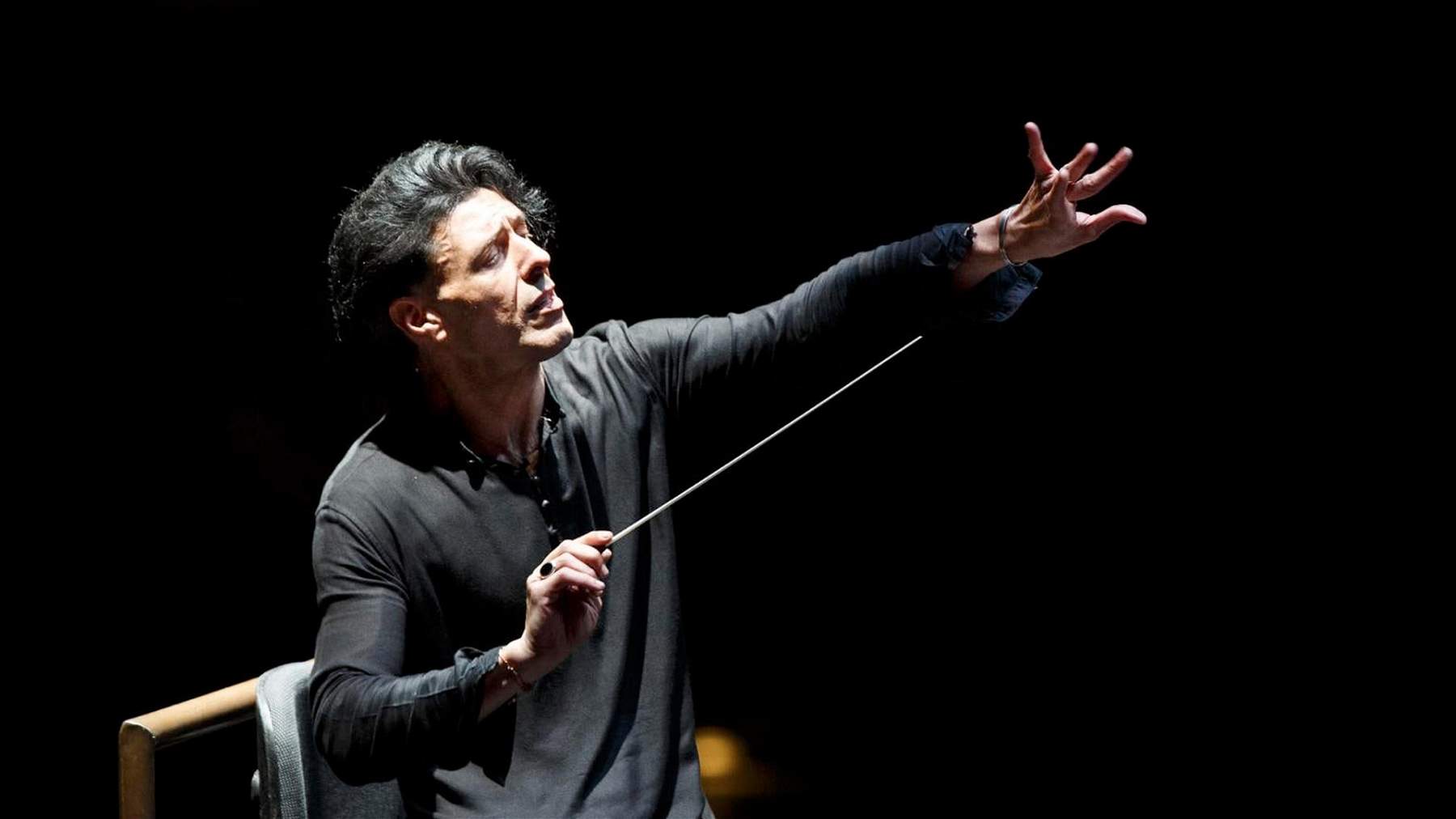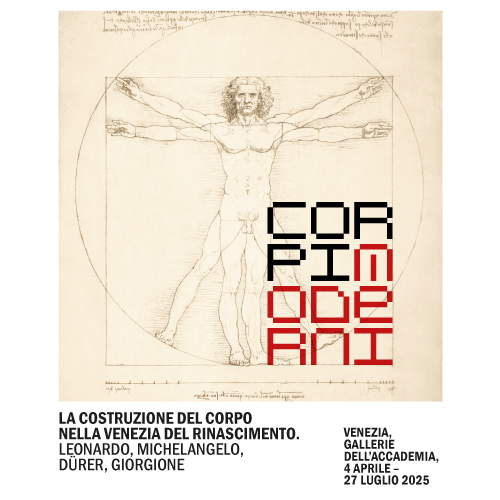Turin, Ezio Bosso Fund is born. It will disseminate the music and thought of the great master
The Fondo Ezio Bosso is born in Turin, and finds a home at the Polo del ’900 at the Istituto Piemontese Gramsci: the archive dedicated to Ezio Bosso (Turin, 1971 - Bologna, 2020) officially starts today, with the aim of spreading the music and thought of the great master especially among young people. After his passing in 2020, the Bosso family initiated a research and cataloguing work of what Ezio left in the main homes in London, Bologna, and Turin, thus constituting the “Ezio Bosso” Fund. Because of Ezio’s “musical nomadism,” it was not obvious to choose a home for this extraordinary archive, but in the end the choice fell on Turin, the city of his birth, where at the age of four Ezio Bosso began that relationship with music that has accompanied him all his life. Specifically, by the will of the family, the Fund has been entrusted to the Polo del ’900 cultural center and deposited at the Istituto Piemontese Antonio Gramsci experts in the enhancement of the most important personalities of the twentieth century and current events. From Turin wants to start a journey to make the maestro’s music and thought known to as wide an audience as possible: with events and activities starting in May, on the anniversary of his death. To ensure maximum public use, digitization of the Fund is also underway on the 9centRo portal, the hub of the Polo’s archives.
“As the Polo del ’900,” explains outgoing director Alessandro Bollo, “we can only be honored to host Ezio Bosso’s artistic and cultural legacy, physically at the Istituto Gramsci and online on 9CenTro. A dual space to give voice to and be inspired by the teachings, talent, music, and intellectual and civic journey that Ezio has left us. Meanwhile, with the digitization of the Fund, 9centRo continues to grow, confirming itself more and more as a point of free access to the history of the great protagonists of our time.”
The Ezio Bosso Fund consists of materials and objects that reconstruct the most important stages of Ezio’s life, starting from his adolescence: from photographs in Turin with his first instrument, the double bass, to the batons he used to conduct the most prestigious international orchestras. Just as many pictures, posters, and films show him in concert with his beloved Steinway, the piano nicknamed “the big brother.” Also scores with Ezio’s annotations and study materials, among others the Second Symphony Under The Tree’s Voices for which they dedicate him a Tree within the Forest that Plays, an honor given to outstanding musicians on the world stage (2011) and the Fourth Symphony for the Magna Charta of European Universities, the first official anthem of this institution (2015). An important nucleus is dedicated to The 12th Room, his first solo album that gives him the Disco D’oro and success with the general public, also linked to the exciting performance, as well as the human lesson, at Sanremo 2016. There are also notebooks of poems and thoughts on his music such as Split, Postcards from far away (the tea room), an ode to hope inspired by the memories of a war veteran. Also present are accounts of hiscivic and social commitment during his stay at the Opera Pia di Barolo in Turin, during the G7 Environment in Bologna, with the Mozart14 Association, Unicef, and the Italian Cancer Research Association. There is no shortage of awards and honors: Disco D’oro (2016), Green Room Award in Australia (so far the only non-Australian awarded, 2011), Golden Neptune of the City of Bologna (2015) and the plaque awarded by the City of Turin (2015). What emerges is the extraordinary career that crosses: the world’s most important opera institutions such as Wiener Stadtoper, Royal Opera House, Sidney Dance Company, New York City Ballet; prestigious choreographers such as Christopher Wheeldon, Edwaard Lliang and Rafael Bonchela; celebrated opera directors such as James Thierrée or from the film scene such as Gabriele Salvatores, for whom he composed the soundtracks for Io Non ho Paura (2003), Quo Vadis Baby? (2005) and The Invisible Boy (2014). Also on file are tributes or dedications from friends and artists including a work by David Tremlett with dedication “I will never, never, never forget your performance” and a bronze sculpture of his hands. Among the material preserved by Ezio and included in the Fund are also an album of drawings made by some children for a school project from listening to his songs; a certificate of adoption of a Wombat in Sidney with accompanying photos confirming his love for animals; a self-loading that recalls his irony; and documents certifying three Asteroids dedicated to Ezio.
The decision to deposit this large bequest at the Istituto Piemontese Antonio Gramsci, already involved with the Arturo Toscanini Cultural Association (ARCI Torino) fund, responds to the Bosso family’s need to give scientific rigor to the deposited material and the widest dissemination. The Compagnia di San Paolo Foundation is also intervening on this front by supporting specific projects aimed at spreading knowledge of maestro Bosso and his work among the younger generation. “We are truly honored to be able to welcome Ezio Bosso’s archive at our l Institute,” says director Matteo D’Ambrosio. “We consider it an important recognition for the attention that the Gramsci has paid to the enhancement of archives since its inception, but even more so it is an opportunity to develop projects of participation and inclusion, aimed especially at and for young people. In this sense, Ezio Bosso’s experience in the world finds much correspondence with that of Antonio Gramsci, starting with the concept of culture as a tool of emancipation and growth for the weaker classes.”
The materials that make up the Fund do not exhaust Ezio Bosso’s artistic experience. Hence the desire to activate collaborations and projects with national and non-national experiences that have shared a path with Ezio. In this regard, the Bosso family says, “It will be necessary to work on research and connection with satellite collections, which would allow us to enter into relations with the Italian and international cultural world, to which Ezio belonged. Satellite collections is a term to define documentations referring to a specific person at other archives or showcases. That is why we would like to invite all those realities and people, who have shared a path with Ezio in these years, to think of this ’House’ as a solar system to which they themselves belong.”
“We are working on a daily basis,” the family adds, “on what we consider one of the fundamental projects for us, namely the publication of his scores, both published and unpublished, which has never taken place before 2021, a necessary process so that his music can be studied by new generations and played by the great orchestras. Buxus Edizioni was only the first step toward that more articulated project on Ezio in the process of artistic and human enhancement of a person recognized by all as a musician, conductor or popularizer, never forgetting that for us Maestro Ezio Bosso will always remain son, brother and uncle. Hence the idea of seeking a ’Home’ for his artistic and poetic thought. But what would have been the most appropriate place to place this ’Home’? What would be the most suitable collaborations that could keep his musical and intellectual legacy active with future generations? It is known that the search for a ’Home’ is never easy also because Maestro Ezio Bosso, unlike his other illustrious predecessors, has never had a real family home; he has inhabited multiple places, each of which has contributed to the formation and development of his artistic thought. This search of ours in Turin for a ’Home’ for Maestro Ezio Bosso has led us to identify the Polo del ’900 as the most appropriate institution to build a cultural, educational and socially impactful project capable of welcoming and continuing his musical thought. And among the institutions here, we have decided to entrust the Gramsci Foundation, already involved with the Arturo Toscanini Cultural Association fund, with this archive of ours in order to contribute to the expansion of an archival heritage also dedicated to music within the broad path undertaken by the Polo del ’900 to connect historical memory with the great themes of contemporaneity. Coincidentally, the area where the Polo del ’900 is located is in close proximity to places belonging to Ezio’s history: not only Piazza Statuto, where he used to hang out as a boy with the Mods, the Juvarra theater of his first experiments with theater and dance, but not far from here is Palazzo Barolo, at which he had his permanent artist residence since 2013. Our inventory work on what Ezio left behind is still in progress, and the materials being unearthed from his main residences in Turin, Bologna and London only partially tell his story. It will also be necessary to research and connect with satellite collections, which would allow us to relate to the Italian and international cultural world, to which he belonged.”
Turin and the Polo del ’900 thus want to be the starting point to ensure that Ezio Bosso continues to inspire future generations. Under this impetus, a series of initiatives dedicated to the Maestro will kick off in May, on the anniversary of his death, including a never-before-seen exhibition at the Polo del ’900 of some materials from the Fund. With the TRT Philharmonic, on the other hand, Maestro Michele Gamba conducts the orchestra in a memorial concert at the Teatro Regio in Turin featuring compositions by Ezio Bosso and also works that the Maestro loved to bring to the public in his great commitment to popularizing classical music (May 16). “In order to make sure that Ezio Bosso continues to speak to people,” says Emiliano Paoletti, future director of the Polo del ’900, “we thought of hosting at the Polo an unprecedented exhibition of some significant items from the Fund. The central focus will be dedicated to ’The 12th room’ one of the most fascinating images that Ezio Bosso left us. On those days at the Polo there will also be activities directed to young people complemented by the stories of those who knew Ezio.”
 |
| Turin, Ezio Bosso Fund is born. It will disseminate the music and thought of the great master |
Warning: the translation into English of the original Italian article was created using automatic tools. We undertake to review all articles, but we do not guarantee the total absence of inaccuracies in the translation due to the program. You can find the original by clicking on the ITA button. If you find any mistake,please contact us.



























